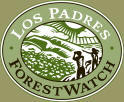|
July 13, 2005
JUDGE ORDERS FOREST SERVICE TO INCREASE PUBLIC
INVOLVEMENT
Officials Must Allow
More Citizen Appeals
and Public Access to Documents
In a victory
for citizen groups, a federal district court judge ruled earlier
this month that the Forest Service must allow citizen appeals
even on projects that are excluded from studies under the
National Environmental Policy Act. Two days
earlier, another judge in a different case ordered the Forest
Service to allow public access to technical studies before – not
after – the agency approves activities on public lands.
These two
rulings, which take effect immediately, apply to all national
forests across the country, including the Los Padres
National Forest.
“The Forest
Service has a duty to actively engage the public in decisions
that involve our public lands, not cut us out of the process,”
stated Jeff Kuyper, executive director of Los Padres
ForestWatch. “More public transparency will result in better
projects with fewer impacts.”
Five
environmental groups, represented by the Western Environmental
Law Center, challenged a 2003 regulation that prevented citizen
groups from appealing decisions that were "categorically
excluded" from environmental review. A categorical exclusion is
an administrative procedure that allows the Forest Service to
approve certain projects without first conducting an assessment
of the project's environmental impacts.
U.S. District
Court Judge James K. Singleton agreed with the environmental
groups and held that the 2003 regulations were “manifestly
contrary” to the Appeals Reform Act, a law passed by Congress to
streamline the appeals process. The judge held that “the following
regulations are invalid as stated in this Order and will be
severed from the Forest Service regulations:"
-
36 C.F.R. §
215.4(a) - "The procedures for legal notice and opportunity
to comment do not apply to projects and activities which are
categorically excluded from documentation in an EIS or EA."
INVALIDATED
-
36 C.F.R. § 215.12(f)
- The following decisions and actions are not subject to
appeal...: Decisions and actions that have been
categorically excluded from documentation in an EIS or EA."
INVALIDATED
The Forest
Service has approved most of projects on the Los Padres National
Forest in the last two years by issuing a blanket statement that
"this decision is not subject to administrative appeal pursuant
to 36 CFR 215.12." Now, as a result of the court ruling, citizen groups will be able to appeal
certain projects to higher authorities within the agency. The
ruling will likely reduce the amount of lawsuits filed against
agencies, since citizen groups will now be able to resolve their concerns with the agency internally before
resorting to litigation.
In the other
lawsuit, the Forest Service failed to
release essential information for public review and comment
before approving a forest thinning project. Instead, the agency
only released a “scoping letter,” a short document that
described the proposed action but did not provide specific
information on potential impacts. The agency later analyzed
these impacts in a series of internal reports, but approved the
projects without first providing these expert reports to the
public for review and comment.
Environmental
groups sued, arguing that the Forest Service violated NEPA by
failing to provide this information to the public before project
approval. Specifically, U.S. District Court Judge David
Levi held that “the Forest Service
failed to give the public an adequate pre-decisional opportunity
for informed comment” and that the scoping notice “did not give
the public adequate information to effectively participate in
the decision-making process leading up to the final decision.”
The judge
also concluded that NEPA regulations “require that the public be
given as much environmental information as is practicable” prior
to project approval “so that a member of the public can weigh in
on the significant decisions that the agency will make.” Because the agency did not fulfill its duty to involve the
public, the judge halted all work on the projects until the
agency allowed a more thorough public review.
Recently, the
Los Padres National Forest has failed to release similar
documents to groups concerned about impacts from several logging
projects. In April 2005, ForestWatch submitted a request under
the Freedom of Information Act for copies of several background
studies related to logging proposals on Figueroa Mountain and
Frazier Mountain in Santa Barbara County. ForestWatch requested
the studies so that it could assist the agency in identifying
ways to reduce impacts to forest resources.
The Forest
Service refused to provide public access to these documents,
stating that the agency would not hand over the documents until
after project approval.
“The public
must have access to these documents immediately so that we can
review them and recommend ways for the agency to reduce impacts
caused by excessive logging,” said Kuyper. “The Forest Service
should comply with the judge’s ruling and release these
documents before, not after, project approval.”
The cases are
Earth Island Institute v. Pengilly, Case No. CIV
F-03-6386 JKS, and Sierra Nevada Forest Campaign v. Weingardt,
Case No. CIV-S-04-2727 DFL KJM. Both cases were filed in the
United States District Court for the Eastern District of
California.
|

